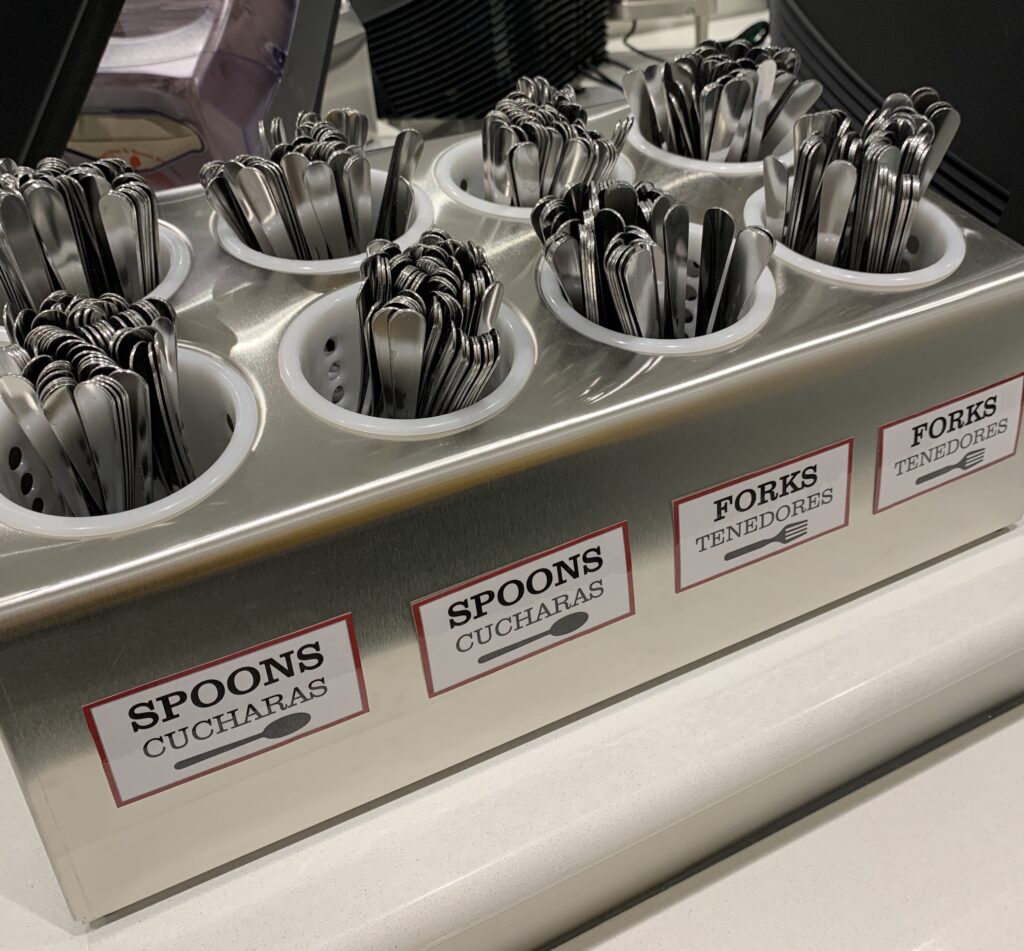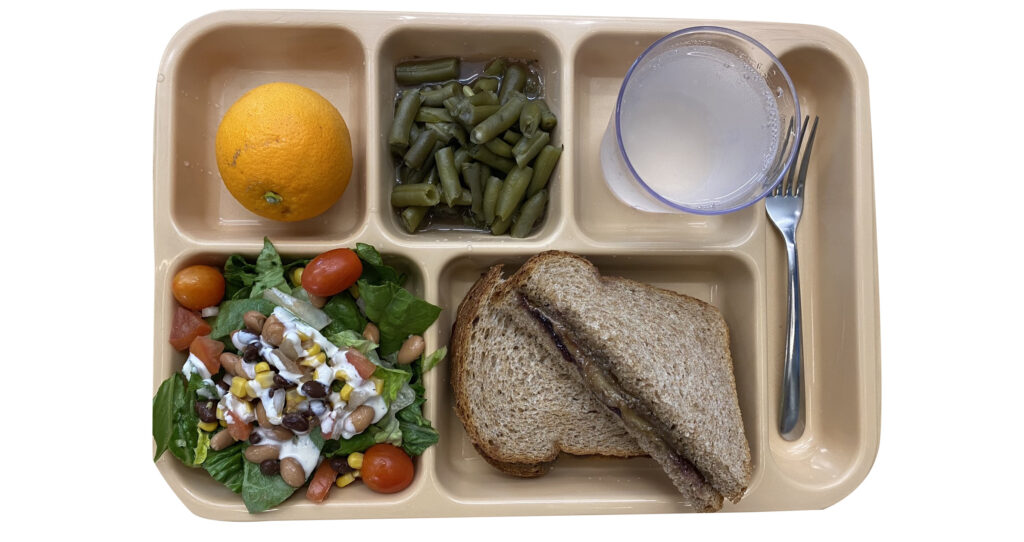
SGA’s Zero Waste Schools program hosted more than 90 attendees from around the country for its March 16 webinar, School cafeterias reimagined: The case for reusable foodware.
The webinar was designed to help schools envision how they can create a better dining experience while protecting student health, cutting costs, and reducing waste by switching to reusable foodware. We learned about the potential health hazards of disposable foodware and how two large urban school districts are making the change.
A recording of the webinar can be found on SGA’s YouTube Channel. A PDF of the presentation contains links to many of the resources mentioned during the webinar.
Here’s a quick recap:
Sue Chiang, the Pollution Prevention Director from the Center for Environmental Health (CEH) in Oakland, CA, first made the case for reusable foodware from a health and safety perspective. She began by debunking the myth that disposables are the safer choice during COVID and confirmed that reusables are perfectly safe to use as long as proper sanitization steps are taken. Sue also shared CEH’s research on the health hazards of various types of single-use foodware. “None of the single-use foodware products are truly sustainable. They all have trade-offs,” she explained. She recommends that all schools “move to reusables as much as possible” and, if a school must use single-use disposables, they should use compostables that are BPI- or CMA-certified.

Diane Grodek, Executive Chef of Austin Independent School District (AISD), explained that her district’s move to reusable foodware will help them achieve their zero waste goals. By fall 2021, they plan to have 11 zero waste school cafeterias featuring reusable foodware, bulk milk dispensers, and salad bars, which are all elements of AISD’s creative and student-centered approach. She also addressed the need for additional staff for dishwashing: “We value people over the use of single-use disposables. It’s better to pay an employee to do a job…than spend money on things we perpetually throw away.”
Minneapolis Public Schools (MPS) Culinary and Wellness Services is also leading their district on a path to zero waste with reusable foodware. Eliza Pesserau, AmeriCorps volunteer serving with MPS, highlighted the district’s 10-year plan to renovate all school kitchens in an effort to shift to onsite cooking and reusable foodware. Eliza is tasked with reducing food waste and finds that her experience with MPS confirms the USDA’s findings that, “the type of material students eat off of influences how likely they are to eat or throw away their food.” Her advice to anyone interested in convincing their district to make the switch to reusable foodware is to “know your audience and tailor your message to what will speak to them.”
All three speakers addressed concerns about the cost of switching to reusables by emphasizing that the initial investment to purchase reusable foodware quickly pays for itself. Not only do schools avoid the ongoing cost of purchasing disposables, they also have the potential to save on hauling costs due to reduced garbage. These savings can be put toward paying the increased staff necessary to clean the foodware.
Is your school/district using reusable foodware? If so, SGA would love to hear from you. We are starting to collect information for a database about the types of reusable foodware that schools around the country are using, which can help serve as an example for others. Contact us at zerowaste@sevengenerationahead.org.
